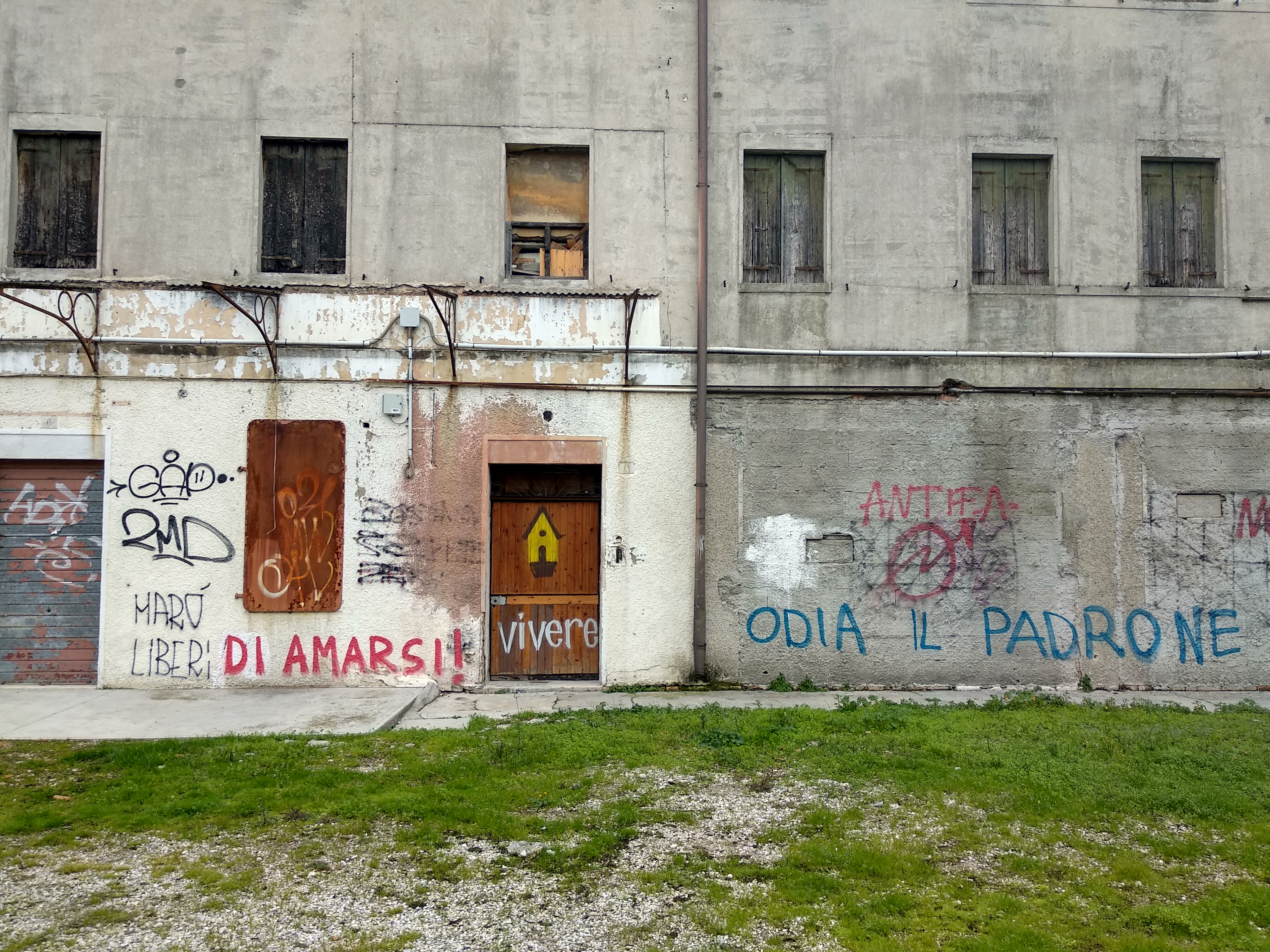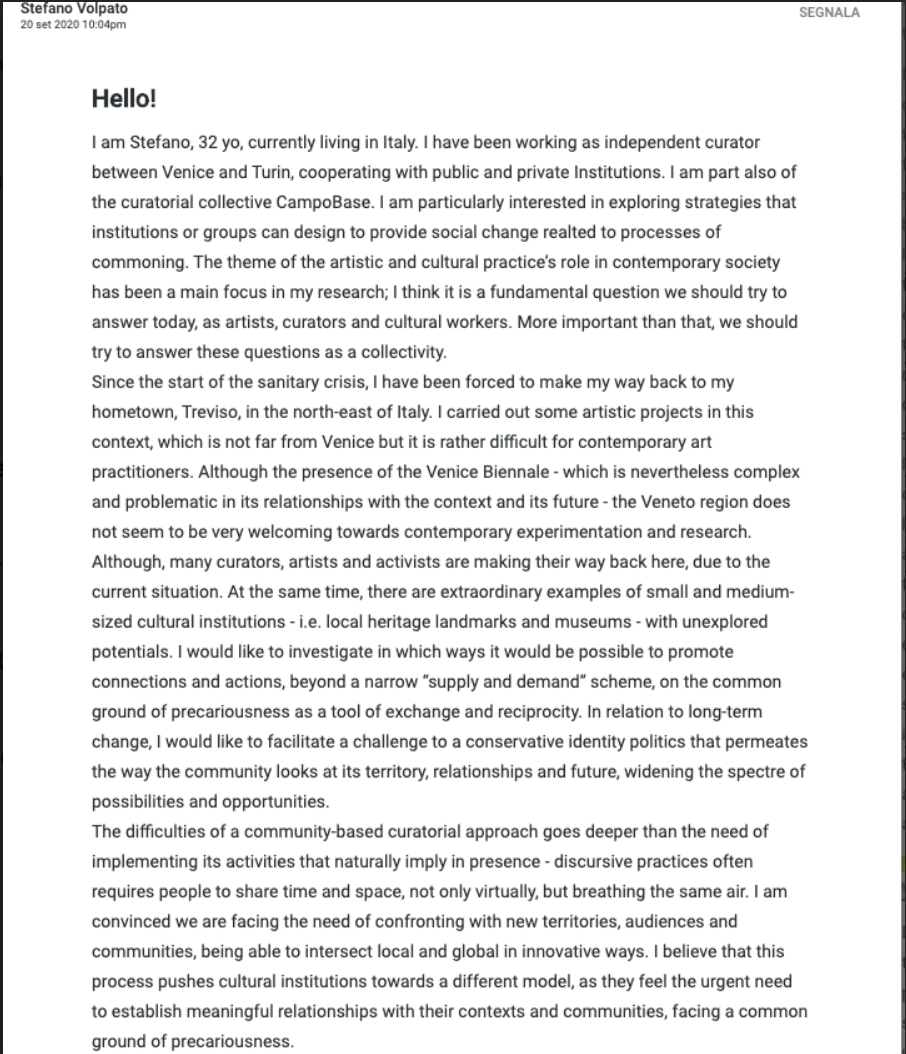RESIDENTS
RESOURCES
PHOTOGRAPHS

The subject of the cover picture/lead image is a writing on wall of a small building near my apartment, just behind the train station. It’s located in a difficult neighbourhood, not a posh one at all. Here and there, you can trace a sort of political struggle through signs and writings on the walls: a rather unofficial, but still effective way of enhancing the public discourse. Many times, someone censors the opponent’s intervention erasing and overwriting it. But that’s not the case I have photographed. “Marò liberi / di amarsi” is the result of two interventions. The first one, “Marò liberi” (“Free the Marò”) was written with the particular font called “Ultras Liberi”, that comes from a vernacular graphic tradition related to post IIWW fascist movements. It refers to a murder case that involved Italian navy personnal jailed in India (the two “Marò”) and that has been largely exploited in national political discourse, mainly by right-wing parties. The second one, “di amarsi” (“to love each other”), is much simpler and direct. Instead of censoring the first part, it ironically demystifies it, putting on the foreground another struggle, the one for LGBTQ+ civil rights. The sense of the first sentence is completely twisted: from “Marò liberi” (“free the Marò”), to “Marò liberi di amarsi” (”“Marò free to love each other”).
Stefano Volpato

- a moment of realisation, change and/or disruption
During the one-week intensive, deepening the condition of “being back home”, I realized the importance of bringing out the personal level driving practice and commitment. This being a political element to clarify your position within the framework, in order to question it.
- a moment of connection
Talking about the polarization between centre and periphery, community empowerment through cultural practices, hands-on approach and aggregation, one of the young people running Hydro - a cultural space in Biella destroyed by a flood in Fall 2020 - told us: “I am a river fish; how do you find your place in a large sea?”.
- any tools / methods / resources to share
Some questions to gather people, desires, visions: how do you feel about being back? Do you feel any bond towards our context (wheter chosen or not)? What opportunities are missing? What resources are there? How to trigger conversation: starting from self-narration to connect experiences and subjectivities; chain conversations with “free-entrance” options; asking for questions, not necessarily answers.
- a question you are left with
From the one-to-one with Mick Wilson. Dealing with the context you are in starts by asking yourself: if you could, where would you be otherwise?
- something you will carry forward
Finding myself in a peripheral territory, I realized that precariousness stands both as a shared existential condition and an opportunity for commoning - but at the same time, it is accompanied by a feeling of disconnection from burning urgencies that resonates the centers. How to transform this “being back” into an act of resistance, rather than experiencing it with a sense of failure? What is the role of public discourse and cultural institutions in these particular contexts? How to affect their opacity?
TRACES
PROCESS
END OF RESIDENCY WEBZINE
ABOUT